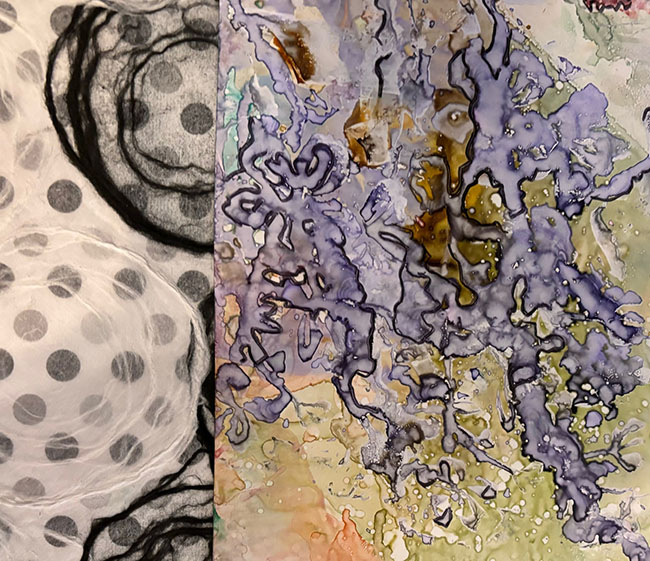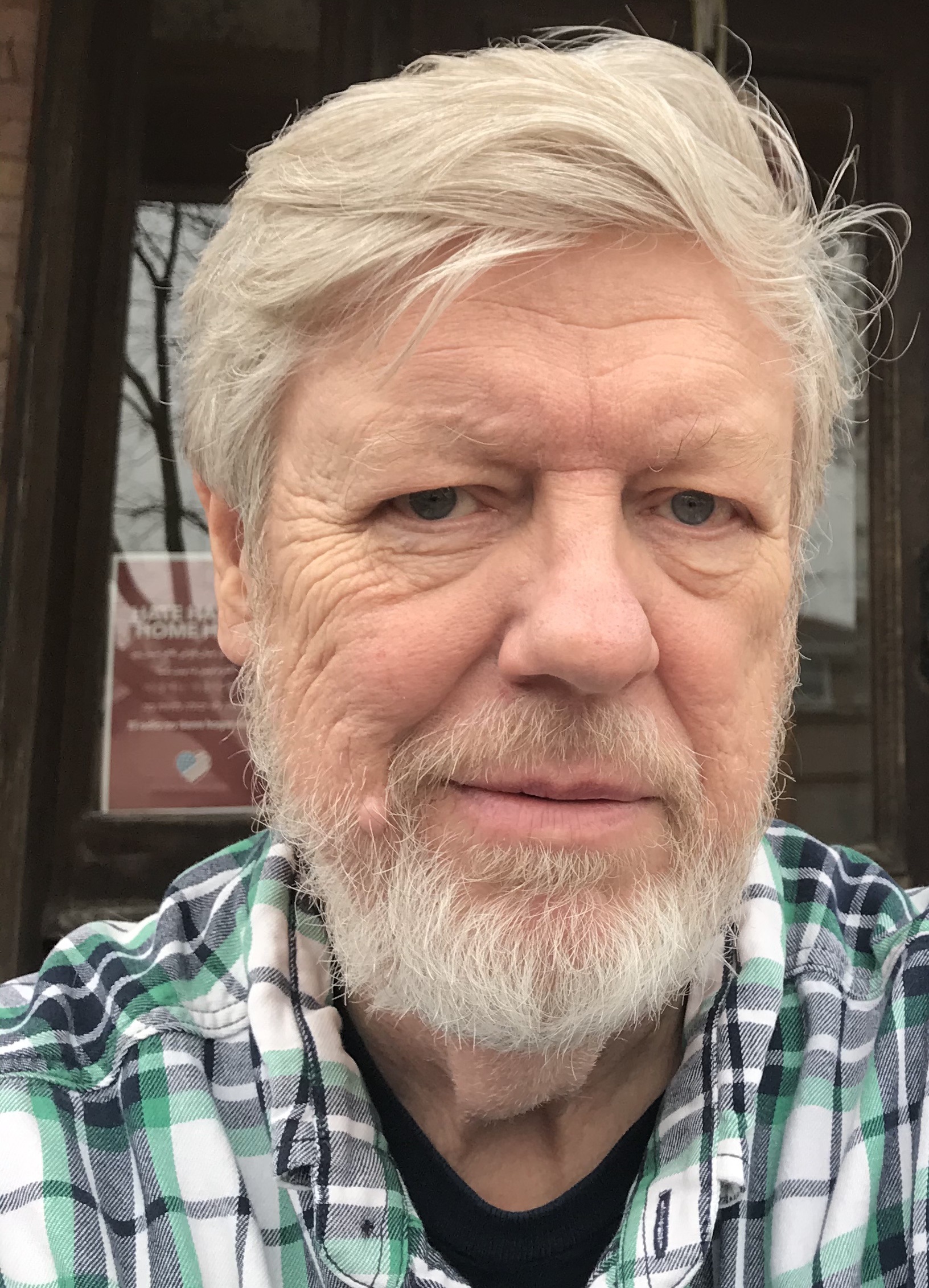Crescent

Cynthia Yatchman is a Seattle based artist and art instructor. A former ceramicist, she received her B.F.A. in painting (UW). She switched from 3D to 2D and has remained there ever since. She works primarily on paintings, prints and collages. Her art is housed in numerous public and private collections. She has exhibited on both coasts, extensively in the Northwest, including shows at Seattle University, SPU, Shoreline Community College, the Tacoma and Seattle Convention Centers and the Pacific Science Center. She is, a member of the Seattle Print Art Association and COCA.
One-Cent Wonder
by Patrick T. Reardon
The dove descending breaks the air With flame of incandescent terror Of which the tongues declare The one discharge from sin and error. — T.S. Eliot, Four Quartets, “Little Gidding,” section IV If I came this way, the dead brother would lead me by the hand to the hut of our parents, comfortable at last in the rough dust and ash smell and mouse movement along the wall, a still point. If I came this way, he would take me by the hand and seat me at the scarred-wood table across from our father, our mother to my left, he on my right, before a meal of peanut butter and jelly sandwiches on day-old white bread with glasses of milk, half powdered with water and half from the icebox gallon. My jacket pocket would hold a spotless invitation to a wedding feast if I came this way, a many-turn journey along city main roads and rural highways. If I came this way, I would hear the bird-talk in our mother’s speech, hear the sun over dawn mountain in our father’s voice, hear my brother’s fist grip ease, a conversation in which I would insect-climb the wall to show I could do it and was proud to do it and how did they like that? If I came this way, I would be wordless in the expanse of my naked skin. I would follow fatted cattle and skittish chickens and barn rats, mud sows, the birds of the air if I came this way. Let the trombones wail if I come this way. Let the car horns sing! If I came this way, I would be a woman with no shame, a man without worthlessness, a shoulder touch, a cockroach treasured by a four-year-old, not yet taught. I would arrive with the lost tribes if I came this way. I would be among the grit refugees, amid a raucous crowd of sinner-saints, vast horde of failures, one and all, bad and good alike, in the embrace that all manner of thing shall be well. I would come, holding my brother’s hand, to the empty auditorium, empty of side altars, empty of tabernacles, empty of angels and archangels, prophets and sibylline seers, would kiss the relic woven into the white fabric on the podium and speak longingly, endearingly, to the ceiling stain in the shape of a galaxy on the far back wall above no rose window. Let Michael lector the Prayer of Aliens in a voice to shake the earth and quake the sky from Chile to Manitoba to Niger to Saint Petersburg, if I come this way. If I came this way, the still hut would be enough. My brother and those two would be cows in the pasture, sparrows in the branches. They would be well-soiled seeds in a vast green field, covered with lilies. They would pleasure in sunlight on their once-fearful cheeks. For me, the placid hut would not be enough if I came this way. I would go home by another path, after listening to a mouse scratch out its scripture if I came this way. I would find, if I came this way, the spider-web of soil, air, fire and pain. If I came this way, I would find the still point in the darkness outside, in the sound of teeth, in the Incarnation feet and hands.

Author's Bio
Patrick T. Reardon, who was a Chicago Tribunereporter for 32 years, has published six poetry collections, including Darkness on the Face of the Deep and Puddin’: The Autobiography of a Baby, A Memoir in Prose Poems. His manuscript, Every Marred Thing: A Time in America, won the 2024 Faulkner-Wisdom Prize for poetry collection from the Pirate’s Alley Faulkner Society of New Orleans. He has been nominated three times for a Pushcart Prize for poetry.